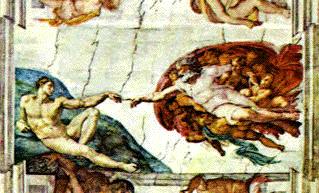Now it would be one thing to say that there was only 44% that voted for the decision. Instead we have 29% that voted against the decision. So all of those who try to make Luther out to be someone who possessed a Canon Trash-Can are slightly overstating their case...don't you think?
Of course the RC may respond by saying that the 29% submitted to the Holy Spirit led church. Therefore Luther should as well. Again, I must ask, does the Holy Spirit command men everywhere to believe leaders in the church without providing the slightest bit of evidence? Are we really to believe the 44% because they merely said so and won the day? By that logic, the Book of Mormon is the Word of God because Utah says so and Clinton had a mandate (while getting 43% of the vote).
I am taking the liberty of posting her post here. I hope she doesn't mind.
----------------------------------------------------------------
Underwhelming Majority at Trent
 Since James posted about Cardinal Seripando's opinion of the biblical canon at the Council of Trent (over at the Aomin blog), I thought I would add an old post from my blog related to the "holy-spirited-guided majority vote":
Since James posted about Cardinal Seripando's opinion of the biblical canon at the Council of Trent (over at the Aomin blog), I thought I would add an old post from my blog related to the "holy-spirited-guided majority vote":
Here is something on the surface level that just doesn’t make sense.
“The Council of Trent on April 8, 1546, by vote (24 yea, 15 nay, 16 abstain) approved the present Roman Catholic Bible Canon including the Deuterocanonical Books.”
-Wiki, Metzger (pg. 246)
If the ratification of the biblical canon at Trent was just a formality, why such an underwhelming vote? If the Council of Trent was simply affirming the same canon that had been held by the Church since the 4th century, wouldn’t you expect a better consensus than 44% yea, 27% nay, and 29% abstaining?
From a strictly human perspective, a 44% majority is far from convincing me that the council members at Trent were sure of the historical witness to the exact nature of the canon. From a divine perspective, a 44% majority is a weak testament to a supposedly “holy-spirit-guided”, infallible council.
(for those unfamiliar with this topic, the typical RC argument is that the canon was conclusively decided by the Roman Catholic Church at the councils of Hippo/Carthage (4th century) and only officially "reaffirmed" at Trent. This argument is made to imply an "indebtness" of all Christians to Holy Mother Church, but in reality, the exact composition of the biblical canon was disputed up until the time of the Reformation and even at the Council of Trent as James' Aomin post has highlighted.)
"THE point that we have arrived at now, if you remember, is this—The Catholic Church, through her Popes and Councils, gathered together the separate books that Christians venerated which existed in different parts of the world; sifted the chaff from the wheat, the false from the genuine; decisively and finally formed a collection—i.e., drew up a list or catalogue of inspired and apostolic writings into which no other book should ever be admitted, and declared that these and these only, were the Sacred Scriptures of the New Testament. The authorities that were mainly responsible for thus settling and closing the 'Canon' of Holy Scripture were the Councils of Hippo and of Carthage in the fourth century, under the influence of St. Augustine (at the latter of which two Legatees were present from the Pope), and the Popes Innocent I in 405, and Gelasius, 494, both of whom issued lists of Sacred Scripture identical with that fixed by the Councils. From that date all through the centuries this was the Christian's Bible." Where We Got the Bible: Our Debt to the Catholic Church

















